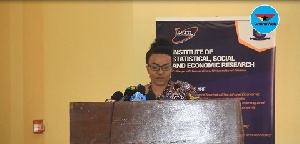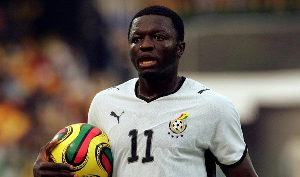The Institute of Statistical, Social and Economic Research (ISSER) in its latest Ghana Social Development Outlook 2016 report indicates that the 4-year duration for Senior High School (SHS) gave better outcomes of results than the 3-year SHS system.
Speaking at the launch of the event, Senior Research Fellow at ISSER, Dr. Nana Akua Anyidoho said if the quality of education is determined by the number of students who pass exams, then based on empirical evidence they gathered from Prof. Kwesi Yankah’s analysis of WAEC results in the past years, the 4-year SHS gave better outcomes as measured by examination scores than 3-year SHS.
Prof. Kwesi Yankah’s analysis of trends of WAEC results from 2006 to 2016 clearly showed that the 4-year system was better than the current three years. According to Dr. Anyidoho, although the finding is limited and narrow, that is the available data they have to support their claim.
The Minister of State in charge of Tertiary Education, Prof. Kwesi Yankah appearing before the Appointments Committee of Parliament in March 2017 said he believes the reintroduction of the 4-year system will help the children since those who went through the former performed better.
His argument is based on the fact that 4-year SHS program gives students more time to transition and go through the curriculum before the terminal examination which takes up the part of the final year of school.
Former President John Agyekum Kufuor’s New Patriotic Party (NPP) administration introduced the 4-year SHS programme in 2007 based on research.
The new system, however, lasted three academic years as the National Democratic Congress (NDC) assumed power in 2009 and reverted to the 3-year system.
Since then, there have been series of debates whether the policy should be reverted or not.
General News of Wednesday, 27 September 2017
Source: www.ghanaweb.com





![A file photo of the private jet [Image Credit: Yaw Pare via Facebook] A file photo of the private jet [Image Credit: Yaw Pare via Facebook]](https://cdn.ghanaweb.com/imagelib/pics/153/15348139.295.jpg)







